 In response to feedback from PGRs, there will now be two competitions this year for the Scheme to allow for activities taking place later in the academic year. PGRs wishing to apply must submit an application form (below) to the Graduate School by the scheme deadlines:
In response to feedback from PGRs, there will now be two competitions this year for the Scheme to allow for activities taking place later in the academic year. PGRs wishing to apply must submit an application form (below) to the Graduate School by the scheme deadlines:
- 2 November 2012 – primarily for activity taking place between October 2012 and March 2013
- 28 February 2013 – for activity taking place between March 2013 and July 2013.
The Graduate School PGR Development Scheme is open to all BU postgraduate researchers (PGRs) irrespective of the mode of study (full-time / part-time) or funding status (BU studentships / externally funded / self funded).
Individual awards will provide financial support of normally up to £2,000 (and exceptionally £5,000) for research activities related to an individual PGR’s research project or personal development. It is envisaged that this year approximately 15 awards will be made.
Examples of research activities covered by the Scheme include:
- Research Activities
- Conference attendance
- Additional fieldwork
- Other activities required to advance research e.g. visiting major libraries, museums, other research institutions (UK, EU or International)
- Preparation of specialist material or data
- Research consumables and equipment (providing it is clear these would not normally be purchased by the School as part of the research degree)
- Developmental Activities
- Research development e.g. attending external training events specific to research activity
- Personal development e.g. attending external personal development training events
- Networking
- Organisation of an academic conference at BU with external participants
- Attendance at external networking events leading to advance of the research
- Publications or dissemination of research
You should also map the proposed activity onto the relevant sub-domains of the Vitae Researcher Development Framework (RDF):
| Knowledge & Intellectual Abilities | A1 – Knowledge base | A2 – Cognitive abilities | A3 – Creativity |
| Personal Effectiveness | B1 – Personal qualities | B2 – Self-management | B3 – Professional & career development |
| Research Governance | C1 – Professional conduct | C2 – Research management | C3 – Finance, funding & resources |
| Engagement, Influence & Impact | D1 – Working with others | D2 – Communication & dissemination | D3 – Engagement & impact |
Awards will only cover direct costs including travel; subsistence; training or development costs and all applications will need to include a precise breakdown of costs. Applications should be supported by the Supervisory Team and the relevant Deputy Dean (Research & Enterprise) of the relevant Academic School.
PGRs wishing to apply must submit a completed GS PGR Development Fund Scheme – Application Form to the Graduate School (graduateschool@bournemouth.ac.uk) by the following deadlines:
- 2 November 2012 – primarily for activity taking place between October 2012 and March 2013
- 28 February 2013 – for activity taking place between March 2013 and July 2013.
Applications to the Scheme will be reviewed independently and all decisions on funding will be made by the Graduate School.
For further information please read the GS Researcher Scholarships Scheme – Policy.

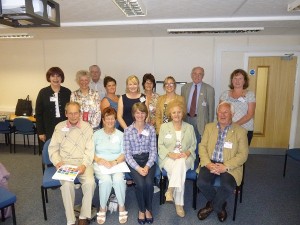
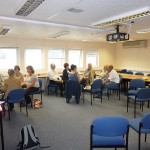
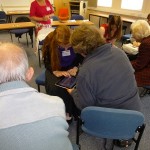

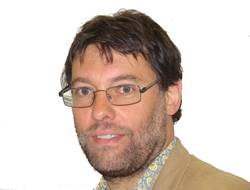
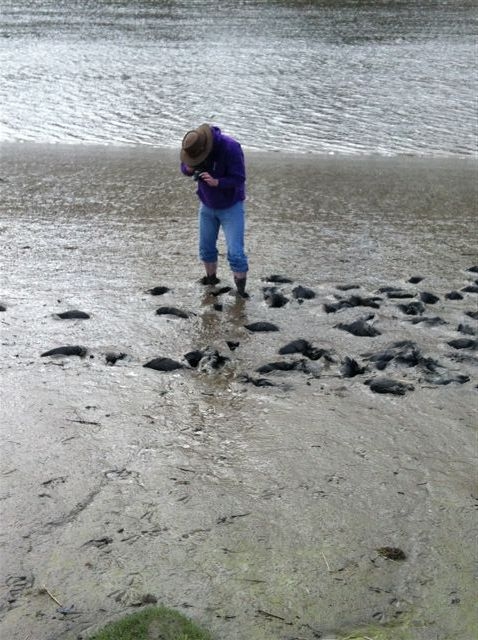


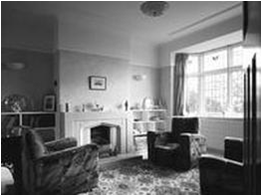














 Conversation article: How 2-Tone brought new ideas about race and culture to young people beyond the inner cities
Conversation article: How 2-Tone brought new ideas about race and culture to young people beyond the inner cities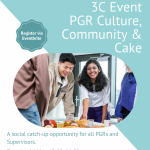 Upcoming 3C Event – PGR Culture, Community & Cake
Upcoming 3C Event – PGR Culture, Community & Cake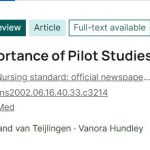 Paper with 160,000 reads
Paper with 160,000 reads The Month in Research: April 2024
The Month in Research: April 2024 Apply for up to £1,000 to deliver an event and take part in a national festival of public engagement with research
Apply for up to £1,000 to deliver an event and take part in a national festival of public engagement with research MSCA Postdoctoral Fellowships 2024
MSCA Postdoctoral Fellowships 2024 Horizon Europe News – December 2023
Horizon Europe News – December 2023